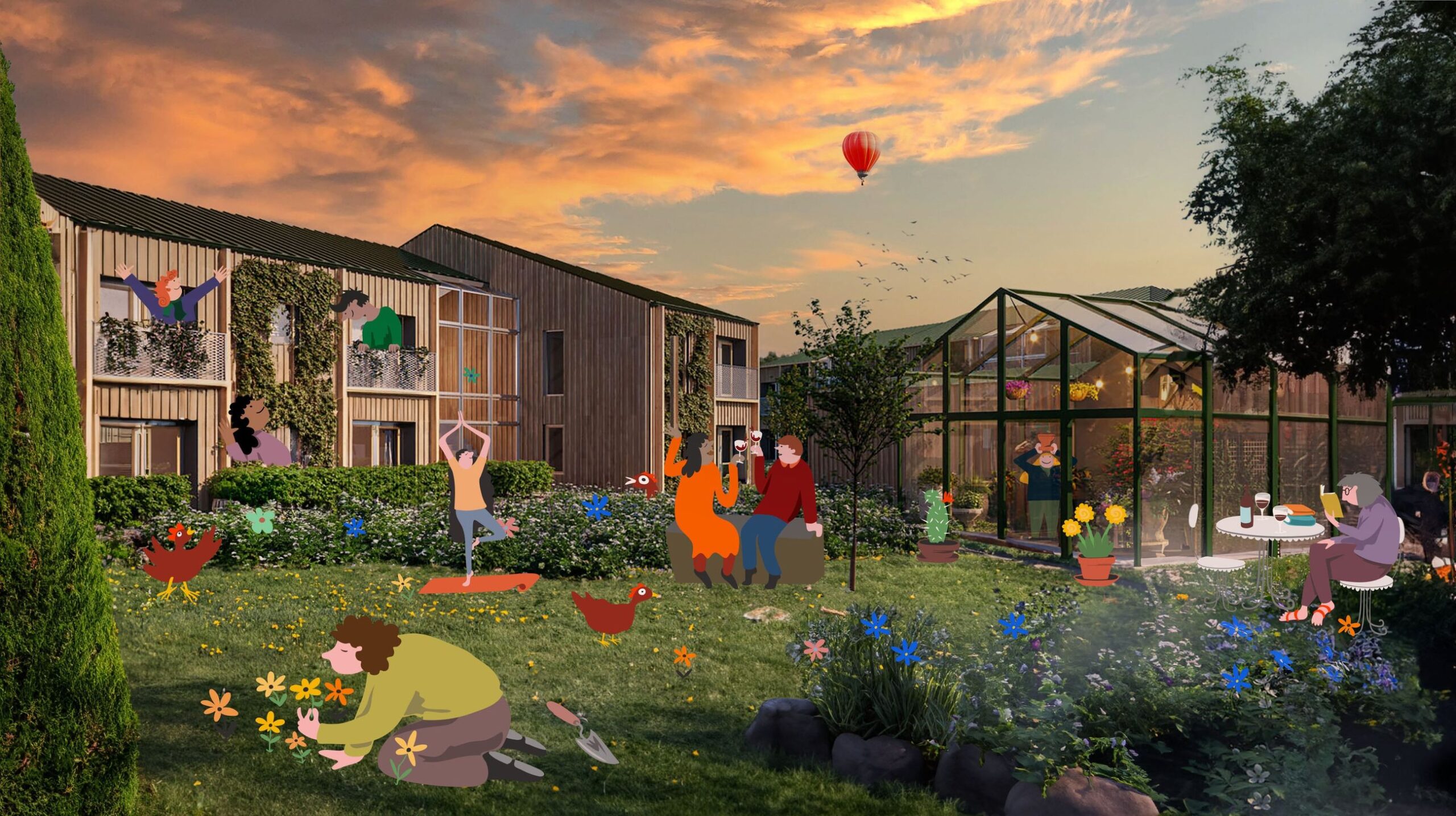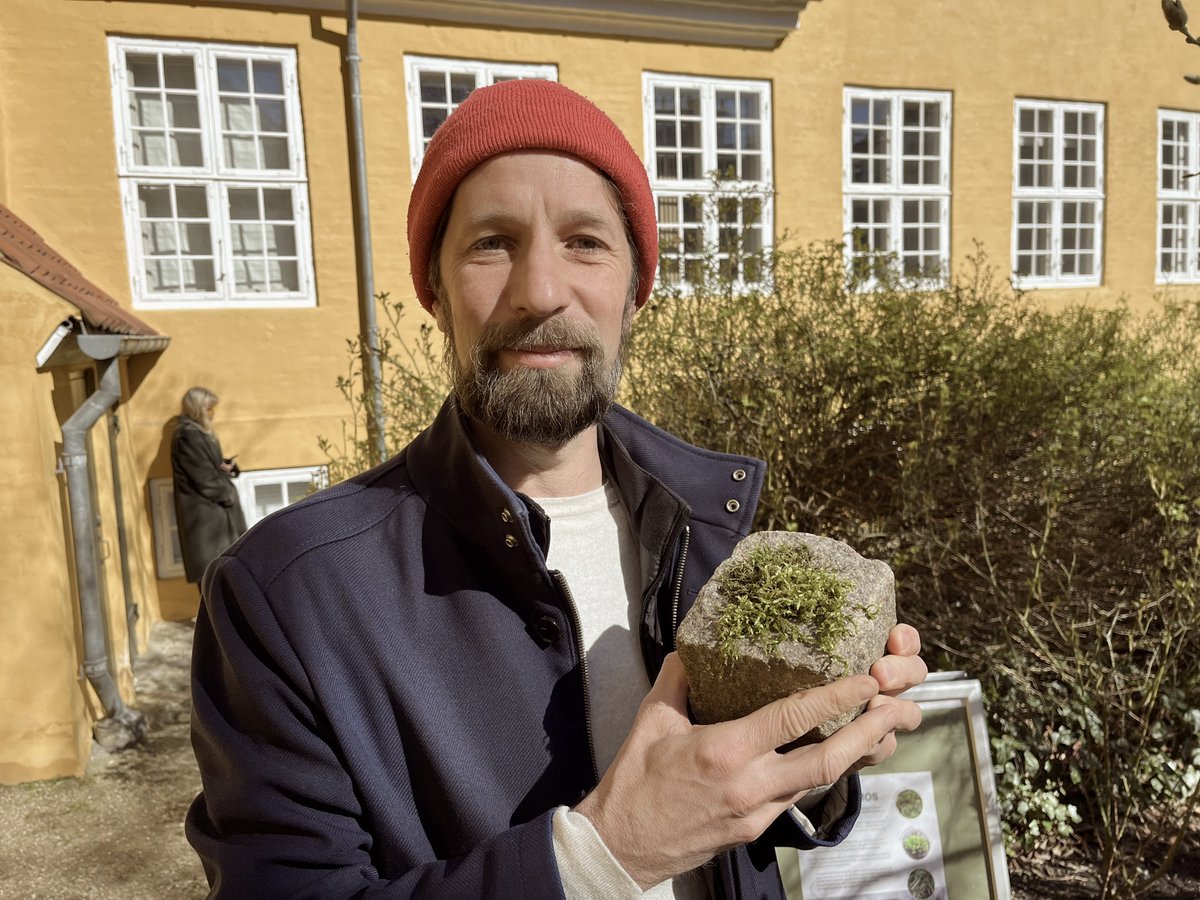As the building industry is juggling pressing issues surrounding affordable housing, sustainability, and human rights issues, two Danish innovators are offering fresh solutions to age-old problems.
By transforming the conventional paradigms of real estate management and ushering in community and member-driven housing models, Rasmus Juul-Nyholm, founder of Home. Earth and Lars Lundbye, founder of Almenr, are demonstrating that not only is challenging the existing norms achievable, but it is also profitable.
Redefining Communal Living
Almenr is a pioneering force dedicated to transforming the way we are living together, creating a modern co-living community built upon shared values. The company takes on the role of reinvigorating this approach, acting as a matchmaking service for families eager to co-create sustainable village communities.
While the name “Almenr” may not roll off the tongue easily for non-native speakers, its essence is clear and inviting. Derived from ancient Nordic roots, “Almenr” signifies “the common.” This name aligns harmoniously with the company’s mission: to nurture a profound sense of community by pioneering contemporary co-living experiences.
As such, Almenr wants to revolutionize the way we build and reside together. While the real estate industry often offers a one-size-fits-all product, Almenr saw a gap in the supply chain—one that prevented citizens from taking control of their housing situation as well as the real estate development. To address this challenge, Almenr decided to undertake critical hurdles in its business model:
First connect like-minded individuals who share the same values through their matchmaking websites. Then, leading the groups securely through the design and construction process as well as securing financing to ensure that the citizen-driven housing communities can operate professionally.
Beyond the Social Sphere
Lars Lundbye, founder and creative director of Almenr, is not afraid of talking about softer values and stresses the significant impact of participation, co-ownership and housing on individual happiness and community cohesion. He says that sustainability isn’t solely an environmental endeavor but a profoundly social one.
However, Almenr’s business model does indeed come with substantial environmental benefits, as Lundbye explains. The co-living model significantly reduces food waste by up to 60 percent, curtails water consumption by up to 35 percent, minimizes mileage, and slashes CO2 emissions by up to 40 percent when compared to average usage. These savings are partly attributable to the increased opportunities for sharing within the community and the enhanced social cohesion. In essence, creating a version 2.0 of the age-old community model contributes to a greener, more sustainable future, according to Lundbye.
New Housing Models in Greater Copenhagen
Another Danish trailblazer that has taken the lead in proving that profitability and sustainability can go hand in hand is Home.Earth. Established in 2021, the real estate company seeks to challenge conventional models of public housing in the Greater Copenhagen area, taking into consideration global challenges such as planetary boundaries and sustainability.
Home.Earth is directing attention to the necessity of scaling sustainable solutions within major cities. Rasmus Juul-Nyholm, the co-founder of Home.Earth, emphasizes that by 2050, an estimated 6.7 billion people will reside in urban centers, marking a 50 percent increase from today’s figures. Moreover, Greater Copenhagen alone will require 200,000 homes by 2040 to accommodate this growth.
Triple-Bottom-Line Sustainability
Home. Earth’s vision lies in a business model that integrates economic, social, and environmental sustainability, demonstrating that its value creation can thrive across all three bottom lines.
With a pipeline of 10-15 projects in the greater Copenhagen area, the company manages the entire value chain, exploring innovative approaches to tenantship and community cultivation. Key components of their approach include circularity in construction and prioritizing sustainable materials, aiming for a remarkable reduction in environmental footprints.
Their approach involves smaller apartment units alongside shared spaces, acknowledging the need for compact living arrangements in the future, Juul-Nyholms says.
Furthermore, Home. Earth is aiming at building trust with tenants by sharing a portion of profits with its residents. The business model also confronts generational challenges, aiming to alleviate the struggles faced by first-time buyers in entering the housing market.
Ultimately, the company strives to deliver favorable outcomes for all stakeholders involved – including investors that are ensured a 10-year Internal Rate of Return.
A Rallying Cry to The Industry
As we witness pioneering advances of companies like Almenr and Home.Earth, it becomes clear that challenging the existing norms is both feasible and profitable. However, to reach international goals, these success stories need to be the inception of a broader movement.
The monumental task of securing affordable housing for all citizens while steering towards a greener future necessitates collective action. It calls upon an entire industry to join the ranks of innovation to champion change and rewrite the narrative of accessible, sustainable housing. This is more than just a hope; it’s a rallying cry to an industry on the brink of making a sweeping transformation.
____
Lars Lundbye of Almenr and Rasmus Juul-Nyholm of Home.Earth are an integral part of the BLOXHUB ecosystem and participates actively in knowledge-sharing events, workshops, and more.
This article is based on presentations and discussions at the Urban Partnership BLOXHUB workshop “Financing Affordable Housing in the Green Transition,” a collaborative between BLOXHUB, the Institute for Human Rights and Business (IHRB), convened experts, advocates, and stakeholders, September 2023.







